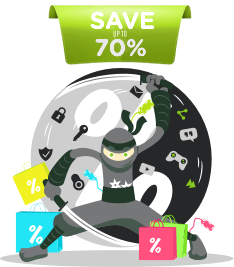 Introduction to Bots
Introduction to Bots
Unlocking the mystery behind those clever little helpers on the internet, let’s dive into the world of bots! Whether you realize it or not, these digital creatures are everywhere, working tirelessly behind the scenes to make our online experiences smoother and more efficient. From chatbots that assist us in customer service interactions to automated programs that collect data for research purposes, bots have become an integral part of our daily lives.
But what exactly is a bot? And how does it work its magic? Join us as we unravel the secrets of these ingenious creations and explore their fascinating history, functionalities, controversies, and even their future predictions.
Get ready to be captivated by the realm of bots like never before!
The History of Bots
 Bots, short for robots, have come a long way since their inception. The concept of automated machines performing tasks dates back to ancient times when inventors and engineers dreamed of creating mechanical creatures that could mimic human actions. However, it wasn’t until the advent of computers and the internet that bots truly began to evolve.
Bots, short for robots, have come a long way since their inception. The concept of automated machines performing tasks dates back to ancient times when inventors and engineers dreamed of creating mechanical creatures that could mimic human actions. However, it wasn’t until the advent of computers and the internet that bots truly began to evolve.
In the early days of computing, bots were primarily used for mundane and repetitive tasks such as data entry or web scraping. These early bots lacked sophistication but laid the foundation for future developments in artificial intelligence and automation.
As technology advanced, so did bots. With advancements in natural language processing and machine learning algorithms, chatbots emerged as one of the most popular types of bots. Chatbots are designed to simulate human conversation and provide assistance across various industries including customer service, healthcare, and e-commerce.
Another significant development in bot history is social media bots. These intelligent programs can automate various activities on social platforms like Twitter or Instagram – from posting content to liking posts or following users. Unfortunately, some individuals misuse these bots for spamming or spreading misinformation.
Today’s bots are more sophisticated than ever before. They can analyze vast amounts of data instantly, make decisions based on complex algorithms, and even learn from user interactions to improve their performance over time.
From simple task automation to advanced AI-powered systems capable of mimicking human behavior – the evolution of bots has been remarkable. As technology continues to advance rapidly with innovations like voice recognition and facial recognition becoming mainstream – we can expect further advancements in bot capabilities.
So next time you encounter a helpful chatbot or see an automated response on your favorite social platform – remember that behind those lines lies a fascinating history shaped by innovation!
Types of Bots and Their Functions
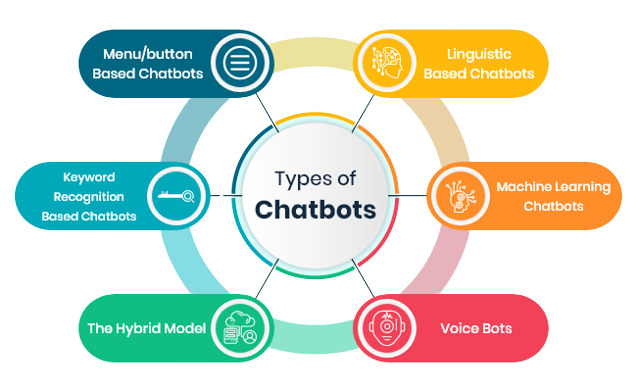 Bots come in various forms, each designed for a specific purpose. Let’s explore some of the most common types of bots and their functions.
Bots come in various forms, each designed for a specific purpose. Let’s explore some of the most common types of bots and their functions.
1. Chatbots: These are perhaps the most well-known type of bot. Chatbots use artificial intelligence to interact with users through chat interfaces, providing automated customer support or answering frequently asked questions.
2. Web Crawlers: Also known as spiders or bots, web crawlers are used by search engines like Google to index websites. They scan web pages, follow links, and collect information to build searchable indexes.
3. Social Media Bots: These bots operate on social media platforms and can perform tasks such as liking posts, following accounts, or automatically posting content at scheduled times. Some social media bots aim to increase engagement artificially by generating fake likes or comments.
4. Shopping Bots: With the rise of e-commerce, shopping bots have become increasingly popular. These bots help users find the best prices for products across different online stores by comparing prices and notifying users when there are discounts or deals available.
5. Gaming Bots: In the gaming world, bots can be used for both legitimate purposes (such as AI opponents) and nefarious activities (such as cheating). Game developers often deploy AI-driven bots to enhance gameplay experiences or provide challenging opponents in single-player modes.
6. Malware Bots: Unfortunately, not all bots have positive intentions. Malware-infected computers can become part of a botnet – a network of compromised devices controlled remotely by cybercriminals – which may carry out malicious actions without the user’s knowledge.
These are just a few examples among many types of bots that exist today! Each type serves its own function and plays a role in our digital landscape; however they do pose challenges when it comes to privacy concerns and cybersecurity threats.
How Do Bots Work?
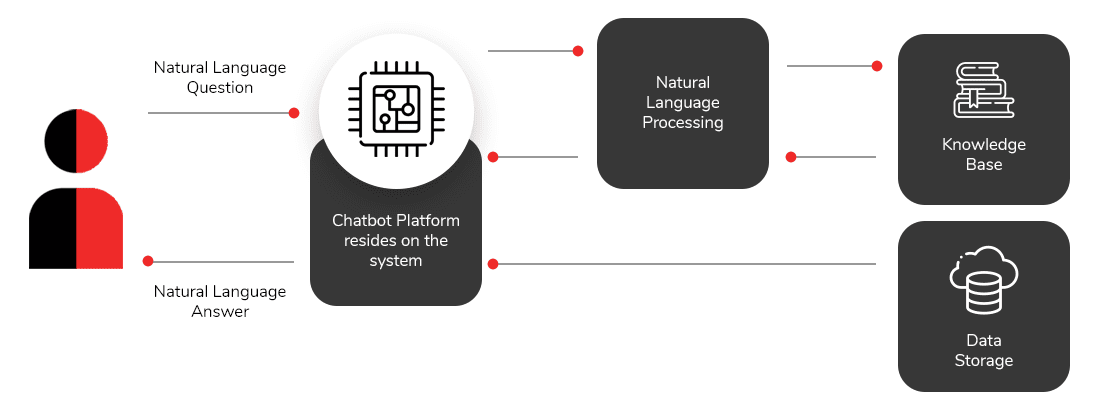
Bots, short for robots, are computer programs designed to automate tasks that would typically be performed by humans. They operate on pre-programmed instructions and algorithms to carry out specific functions. But how exactly do bots work? Let’s dive in.
Bots rely on APIs (Application Programming Interfaces) to interact with various platforms and services. These APIs allow the bot to send requests and receive responses from websites or applications they are programmed to access. By leveraging these APIs, bots can perform actions like retrieving data, submitting forms, or even making purchases.
Bots employ a variety of techniques to navigate through websites or apps. They can use web scraping tools to extract information from web pages automatically. Additionally, some advanced bots utilize machine learning algorithms that enable them to learn from user interactions and improve their performance over time.
To communicate with users or perform certain tasks autonomously, chatbots are commonly used. Chatbots leverage natural language processing (NLP) technologies that enable them to understand human language input and provide appropriate responses accordingly.
In order for bots to function effectively without human intervention, they often require continuous monitoring and maintenance by developers. This ensures that the bot remains up-to-date with any changes made on the platforms it interacts with.
Bots have revolutionized many industries by streamlining processes and saving time for businesses and individuals alike. Whether it’s customer service chatbots providing instant support or social media management bots scheduling posts automatically – the possibilities seem endless!
However, it is important not to overlook potential risks associated with malicious bot activities such as spamming or spreading misinformation online. Proper measures should be taken by organizations and individuals alike to protect against harmful bot behaviors.
Benefits of Using Bots
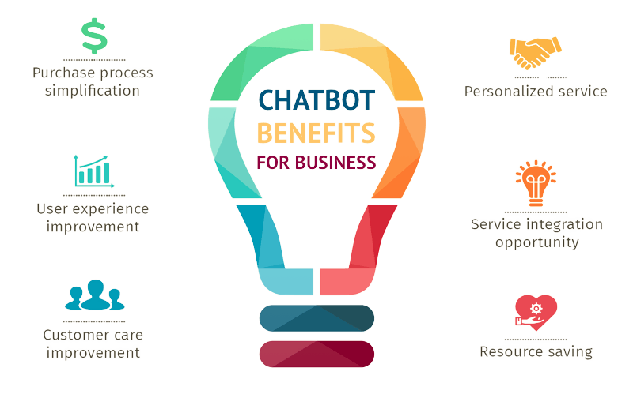
1. Increased Efficiency: One of the major advantages of using bots is their ability to automate tasks, which can significantly increase efficiency. Bots can handle repetitive and mundane tasks at a much faster pace than humans, freeing up valuable time for employees to focus on more critical and creative work.
2. Improved Customer Service: Bots are increasingly being used in customer service to provide quick and accurate responses to queries and complaints. They can be programmed with specific information about products or services, allowing them to assist customers effectively and promptly.
3. Cost Savings: Implementing bots can lead to cost savings for businesses. By automating certain processes that would otherwise require human resources, companies can reduce labor costs while maintaining high productivity levels.
4. 24/7 Availability: Unlike humans who need rest, bots have the advantage of working round-the-clock without fatigue or breaks. This means that they can respond to customer inquiries or perform tasks at any time of the day, providing uninterrupted service.
5. Personalization: With advancements in artificial intelligence (AI), bots now have the capability to learn from user interactions and personalize their responses accordingly. This allows businesses to deliver tailored experiences and recommendations based on individual preferences, enhancing customer satisfaction.
Leveraging bots offers numerous benefits for businesses across various industries – from increased efficiency and improved customer service to cost savings and personalized experiences.
Controversies Surrounding Bots
Bots have become an integral part of our digital landscape, but their presence isn’t without controversy. While bots can be incredibly useful for automating tasks and providing personalized experiences, they also bring along a host of ethical concerns.
One major controversy surrounding bots is their potential for spreading misinformation and fake news. With the ability to rapidly disseminate information across various platforms, bots have been used to manipulate public opinion and sway political discourse. This has raised questions about the role of social media companies in monitoring and regulating bot activity.
Another concern is privacy invasion. Bots collect vast amounts of user data in order to deliver tailored content or services. However, this collection raises privacy concerns as users may not always be aware that their personal information is being collected or how it will be used.
Furthermore, there are debates around the impact of automation on employment. As more jobs become automated by bots, there is a fear that it could lead to widespread job loss and economic inequality.
Additionally, security risks associated with malicious bots cannot be ignored. Hackers can use these bots to launch DDoS attacks or spread malware, causing significant damage to individuals and organizations alike.
While bots offer numerous benefits, it’s crucial to address the controversies surrounding them through regulations and safeguards that protect user privacy and combat misinformation.
Future Predictions for Bots
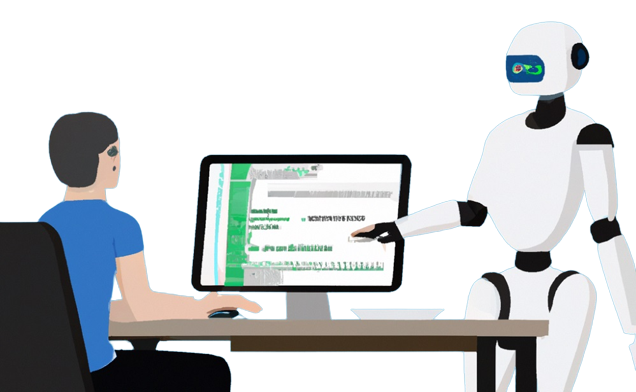
1. Enhanced Personalization: In the future, bots are expected to become even more advanced and capable of delivering highly personalized experiences. They will be able to analyze vast amounts of data and tailor their interactions with users based on individual preferences and needs.
2. Increased Integration: As technology continues to evolve, we can expect to see bots being integrated into various aspects of our daily lives. From smart homes that are controlled by voice-activated bots to virtual assistants that help us navigate complex tasks, the possibilities are endless.
3. Improved Customer Service: Bots have already made significant strides in improving customer service by providing quick and accurate responses to queries. In the future, they are likely to become even more efficient at handling customer inquiries, reducing wait times and enhancing overall satisfaction.
4. Expansion in Healthcare: The healthcare industry is also set to benefit from advancements in bot technology. Bots could assist with patient monitoring, medication reminders, and even provide virtual consultations with medical professionals.
5. Ethical Considerations: With the increased use of bots comes ethical considerations surrounding privacy and security issues. Striking a balance between convenience and protecting user information will be crucial moving forward.
6. Impact on Job Market: While some fear that bots may replace human jobs, others believe they will create new opportunities as well as enhance existing roles by automating mundane tasks, allowing humans to focus on more strategic work.
7. Continuous Learning Abilities: Future bots may possess enhanced machine learning capabilities which enable them to adapt and improve over time without human intervention or reprogramming.
The future holds great potential for bot technology across various industries. This also presents challenges that need careful consideration as we move forward into this increasingly automated world.
How VPN helps against malware bots?
 One of the effective ways to protect yourself from malware bots is by using a Virtual Private Network (VPN). A VPN creates a secure and encrypted connection between your device and the internet, making it difficult for hackers or malicious bots to intercept your data.
One of the effective ways to protect yourself from malware bots is by using a Virtual Private Network (VPN). A VPN creates a secure and encrypted connection between your device and the internet, making it difficult for hackers or malicious bots to intercept your data.
When you connect to a VPN server, all of your online activities are routed through an encrypted tunnel. This means that even if a bot tries to infiltrate your network, it won’t be able to access any sensitive information like passwords or personal data.
Additionally, VPNs can help prevent malware bots from tracking your online behavior. By masking your IP address and location, a VPN makes it harder for these malicious actors to target you with tailored attacks.
Moreover, some advanced VPNs offer additional security features like ad-blocking and anti-malware protection. These features can help detect and block known malicious websites or suspicious files before they even reach your device.
Using a VPN is an effective way to safeguard yourself against malware bots. By encrypting your internet connection and hiding your real identity online, you can significantly reduce the chances of falling victim to these harmful entities.
Conclusion
Bots have become an integral part of our digital landscape, revolutionizing the way we interact with technology. From simple automated tasks to complex AI-powered systems, bots are capable of performing a wide range of functions that benefit individuals and businesses alike.
Throughout history, bots have evolved from their humble beginnings as chatbots to sophisticated virtual assistants that can provide personalized recommendations and streamline various processes. They have proven to be invaluable tools in sectors such as customer service, marketing, and even healthcare.
Understanding how bots work is essential for leveraging their capabilities effectively. Whether it’s through rule-based programming or machine learning algorithms, these intelligent programs can analyze data and respond accordingly, making them highly efficient in handling repetitive tasks and providing quick solutions.
Benefits of Bots
The benefits of using bots are extensive. They save time by automating mundane tasks, enhance customer experience by delivering instant support round-the-clock, and improve efficiency by streamlining workflows. Businesses can rely on bot technology to boost productivity while reducing costs.
However, controversies surrounding bots also exist. The misuse of bots for malicious purposes such as spreading misinformation or engaging in fraudulent activities poses serious ethical concerns. It is crucial to strike a balance between harnessing the potential benefits of bot technology while addressing the associated risks.
Looking ahead into the future, it’s evident that bot technology will continue to advance at an accelerated pace. With advancements in natural language processing (NLP), machine learning techniques, and AI capabilities. We can expect bots to become even more intelligent and human-like in their interactions.
In conclusion! Bots are here to stay! As they continue evolving alongside emerging technologies like VPNs (Virtual Private Networks), which offer enhanced security against malware-infected bots – ensuring safer online experiences for users worldwide!
So embrace this digital revolution! Befriend the bot! And watch as these incredible creations shape our world for years to come!


